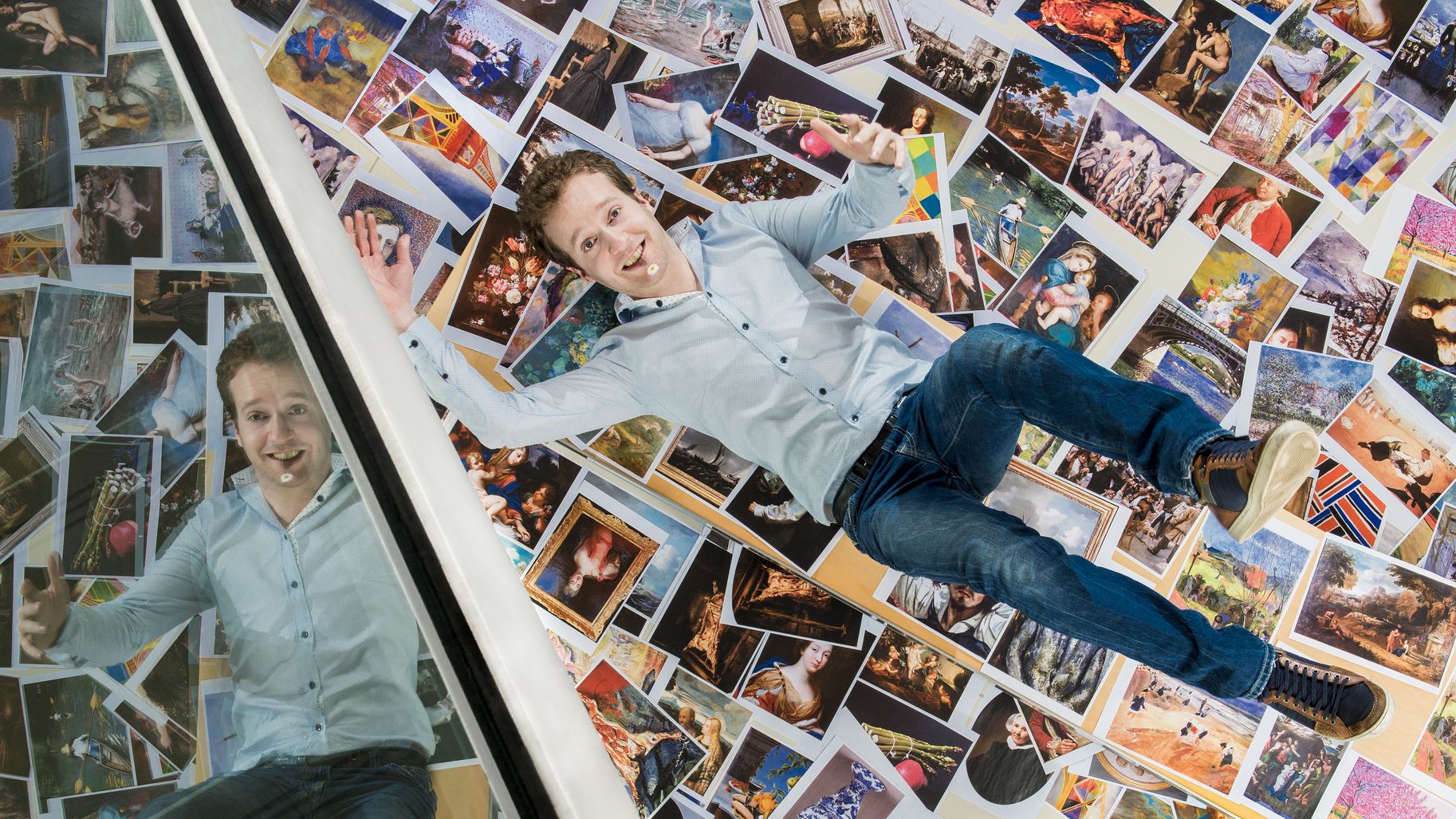Deepomatic, a start-up from Inria Paris, joins the Microsoft AI Factory program
Date:
Publish on 29/01/2020

For the past three years Deepomatic - a start-up originating from Inria Paris - has been working on the development of an artificial intelligence software platform enabling any company to design and integrate its own visual recognition solution. Detecting cancerous cells, analysing social network images so that brands better understand their customers or detecting terrorist behaviours, improving the intelligence of autonomous vehicles and automating the quality control of infrastructures: these are today possible thanks to the artificial intelligence solution commercialised by Deepomatic for the last year.
Deepomatic was created in July 2014 by three young new technologies enthusiasts, Augustin Marty (CEO), Aloïs Brunel (CPO) and Vincent Delaitre (CTO). In July 2015 it obtained funding from Bpifrance and then raised seed capital funding for a total sum of 2.2 million Euros, from Alven Capital and business angels such as Bertrand Diard, CEO of Talend, and Dominique Vidal, partner in the American fund Index Venture.
Today Deepomatic has 20 staff and 15 clients including numerous major accounts, representing a turnover of 1.6 million Euros since the commercialisation of the software platform.
Deepomatic's mission is to provide companies - all sectors of activity combined - with a technology enabling them to design and build, internally, their own image recognition solution dedicated to their specific business requirements. Moreover, Deepomatic provides its customers with the possibility of keeping the intellectual property of what they create.
The Deepomatic software platform operates on SaaS or locally, and allows companies to become autonomous with regard to the creation, management and development of their artificial intelligence. The start-up also supports businesses with the integration of the platform and the training of internal teams, in particular when the projects are complex and are part of the transformation of the structure.
The French start-up has already attracted major companies such as Oscaro.com, the marketplace leader in new and original car spare parts, for the automated quality control of its product information sheets. There is also Compass Group, the company catering specialist, for the analysis of meal trays, as well as the RATP Group following the 'Urban & Mobility' challenge won during the Vivatech trade fair mid-June for their analysis of surveillance camera data. Deepomatic also collaborates with Innovate UK - an organisation working for the British government - to analyse satellite images on a large scale.
"We are convinced that visual recognition will become an integral part of our lives. It will impact all sectors, from industry to security, and health to the environment. Today, it enables our customers to gain in productivity but also to develop new products, thereby freeing up unexploited opportunities for value creation," Augustin Marty, CEO of Deepomatic, explains.
|
About Deepomatic: Deepomatic supports companies with the development of visual recognition solutions relating to their business requirements. Its software platform, in SaaS mode, enables every business - all sectors combined - to design and implement, internally, their own visual recognition solution. |
"I had felt for several years that deep learning was a strong trend"
Research engineer at Inria in Paris, Vincent Delaitre learned to code all by himself, when he was still at school.
Today, with Deepomatic, he puts his latest research findings at the service of e-commerce.
Vincent Delaitre had been planning this for several years, with his friend Aloïs Brunel whom he met at thegrande écoleENS Lyon. They were already evoking their future business in the classroom, without knowing what form it would take. When they arrived in Paris, they did the rounds of the hackathons: "once, we proposed an application that recognised restaurant names. All that was needed was to take a photo of the façade to access the comments left on Yelp and Trip Advisor, for example," Vincent Delaitre explains. At another competition, they proposed an application that closely resembled Deepomatic: users could take photos of people they saw to find out where to buy the clothes they were wearing. However in practice the project came up against a problem: you can't just take a photo of somebody in the street!
Science at the service of e-commerce
It took many more long months of reflection, along with an encounter with Augustin Marty - a young entrepreneur and former student at the civil engineering schoolEcole des ponts et chausséesand who specialised in business finance - for the Deepomatic concept to stabilise and find its business model. It would take the form of a widget, that websites could aggregate to their photos in order to link them to e-commerce websites. This functionality is based on a trend that Vincent Delaitre had felt was rising in the field of computer science research: deep learning. This form of artificial intelligence enables the automatic extraction of information from an image.
An early passion for artificial intelligence
Passionate about computer science, at the age of nine this gifted child was already concocting little programs on a child's computer his parents had given to him. At the age of 13, he had created an artificial intelligence capable of beating him at Connect Four. His passion for artificial intelligence became clear one day when, as a sixth-form student, he came across an article in the French science magazineSciences et Vie. He discovered that two researchers had created robots capable of learning how to play cat and mouse. As the game went on, the characters adopted distinct strategies, the first to chase better and the second to get away better. "This article really impressed me and, most of all, convinced me to get into computer science."
During his studies, he therefore decided to work on artificial intelligence and, more specifically, computer vision. "I was fascinated by the fact that a machine could understand a scene on a photo," Vincent Delaitre explains. With his start-up, he is the only person to have put deep learning at the service of e-commerce and the media.